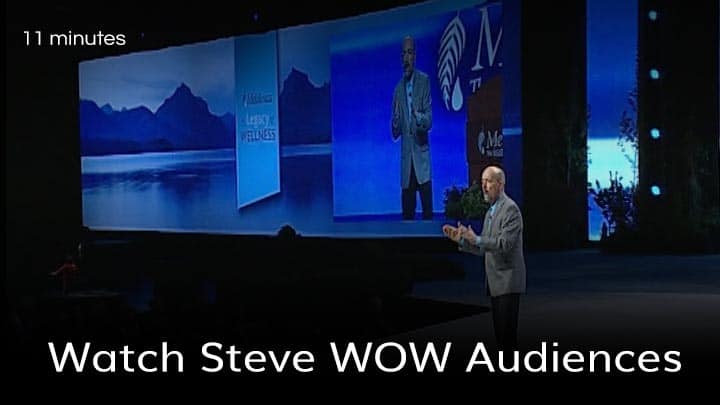Blog
Devotion vs Discipline Mindset
Devotion vs. Discipline: The Mindset Shift That Changes Everything
Discover why the devotion vs discipline mindset could be the key to unlocking sustainable success and genuine fulfillment in your personal and professional life.
What if everything you’ve been taught about achieving success is backwards? What if the “grind harder” mentality that dominates our culture is actually sabotaging your long-term happiness and sustainable achievement?
The distinction between devotion and discipline isn’t just semantic—it’s transformational. As someone who has spent decades helping people shift their mindsets from limitation to possibility, I’ve witnessed firsthand how this subtle but profound change in approach can revolutionize not just what you accomplish, but how you feel about the journey itself.
Devotion vs Discipline Mindset: The Hidden Cost of Pure Discipline
We live in a culture obsessed with discipline. Social media feeds overflow with 4 AM workout selfies, productivity hacks, and mantras about “crushing it” no matter what. The disciplined mindset screams: “I’m going to do this even if it kills me!” But here’s the uncomfortable truth—sometimes it literally does kill parts of us.
Recent research highlighted by CNN suggests that “discipline is kind of more driven by obligation or structure, and devotion rises from love and passion.” This distinction matters more than you might think. When we operate purely from discipline, we’re essentially white-knuckling our way through life, powered by willpower alone.
The disciplined mindset creates what I call the “achievement trap”—the belief that if you just push hard enough, sacrifice enough, and maintain enough self-control, you’ll eventually arrive at happiness. But too many people today get so caught up in trying to make a living that they forget what it’s like to live.
The Ego-Driven Nature of Discipline
Discipline speaks from the ego. It’s the voice that says you must prove your worth through suffering, that easy equals lazy, and that rest equals weakness. This ego-driven approach creates an impatient mindset of always tweaking, always fixing, never trusting the process.
When discipline is your primary driver, you’re constantly at war with yourself. You’re either “on” or “off.” You’re either perfect or you’ve failed. There’s no middle ground, no grace, no acknowledgment that sustainable success requires both effort and ease, both action and allowing.

Devotion vs Discipline Mindset: The Soul-Centered Power of Devotion
Devotion operates from an entirely different energy source. Where discipline demands, devotion flows. Where discipline forces, devotion attracts. As Psychology Today notes, “Devotion has about it a sense of love and also a sense of worth: We are devoted to something because we sense its worth and also because we love it.”
When you shift from discipline to devotion, you’re no longer driven by obligation or fear of failure. Instead, you’re pulled forward by passion, purpose, and a deep connection to what truly matters to you.
Devotion Speaks from the Soul
A mindset of devotion recognizes that achievement alone does not make the person. The goal is just a gift—it’s how you’ve lived and what you’ve done to achieve the goal that brings value to it. This perspective completely transforms your relationship with success.
Devotion reminds you not to ignore other sacred parts of your life that need your attention and nourishment. It understands that you are not just a goal-achieving machine, but a multifaceted human being with relationships, health, creativity, and spiritual needs that all deserve care.
Most importantly, devotion reminds you to do what needs to be done while also knowing when to let go and trust—whether you call it God, the Universe, or simply the natural flow of life.
The Practical Differences: How They Show Up in Daily Life
Understanding the conceptual difference between devotion and discipline is one thing, but recognizing how they manifest in your daily experience is where real transformation begins.
In Your Career
The Disciplined Approach: You force yourself to work late every night because that’s what “successful people do.” You ignore signs of burnout because stopping feels like weakness. You measure worth solely by output and compare yourself constantly to others.
The Devoted Approach: You work with focused intensity because you’re genuinely passionate about your contribution. You recognize that sustainable excellence requires rest and renewal. You measure success by alignment with your values and the positive impact you’re creating.
In Your Health and Fitness
The Disciplined Approach: You follow a strict regimen regardless of how your body feels. Missing a workout creates guilt and shame. You view your body as something to be controlled and dominated.
The Devoted Approach: You move your body because you love it and want to care for it. You listen to its signals and adjust accordingly. Exercise becomes a form of self-care rather than self-punishment.
In Your Relationships
The Disciplined Approach: You schedule relationship time like another task to check off. You try to force connection and intimacy. You view relationship challenges as problems to be solved through sheer effort.
The Devoted Approach: You prioritize relationships because they feed your soul. You create space for spontaneous connection. You approach relationship challenges with curiosity and compassion rather than force.
Devotion vs Discipline Mindset: The Neurological Reality: Why Devotion Works Better
Modern neuroscience supports what ancient wisdom traditions have long understood: sustainable change happens more easily when we’re motivated by love rather than fear. When you operate from devotion, you’re accessing different neural pathways than when you operate from discipline alone.
Discipline often activates the brain’s stress response system. You’re essentially trying to override your natural desires through force, creating internal resistance and eventual burnout. Devotion, on the other hand, aligns your conscious goals with your deeper values and desires, creating what psychologists call “intrinsic motivation.”
This alignment makes the journey feel less like work and more like play. It’s the difference between pushing a boulder uphill (discipline) and floating downstream (devotion). Both can get you where you want to go, but one preserves your energy and joy while the other depletes them.
Making the Shift: From Force to Flow
Transitioning from a discipline-based to a devotion-based approach isn’t about abandoning structure or becoming lazy. Instead, it’s about finding a more sustainable and enjoyable way to create the life you want.
Step 1: Examine Your Why
Before you can move from discipline to devotion, you need to get clear on your deeper motivations. Ask yourself:
- Why do you really want to achieve this goal?
- How will accomplishing this align with your core values?
- What impact will this have on the people you care about?
- How does this goal serve something larger than yourself?
When your goals are connected to your deeper purpose, the energy to pursue them feels less forced and more natural.
Step 2: Redefine Success
A devotion-based mindset requires expanding your definition of success beyond just outcomes. Start measuring:
- How much you enjoyed the process
- What you learned about yourself along the way
- How your journey inspired or helped others
- The quality of your relationships during the pursuit
- Your overall sense of well-being and fulfillment
Step 3: Build in Sacred Pauses
Devotion includes the wisdom to know when to act and when to rest. Unlike discipline, which often demands constant action, devotion understands the power of strategic pauses.
These pauses aren’t signs of weakness—they’re opportunities for reflection, course correction, and renewal. They’re when inspiration strikes, solutions emerge, and energy naturally replenishes.
Step 4: Trust the Process
Perhaps the most challenging aspect of shifting to devotion is learning to trust. Discipline wants to control every variable, but devotion recognizes that some of the best outcomes emerge from a combination of effort and surrender.
This doesn’t mean becoming passive or giving up responsibility. It means doing your part while staying open to possibilities you hadn’t considered and paths you hadn’t planned.
Devotion vs Discipline Mindset: The Ripple Effect: How Devotion Transforms Everything
When you make this shift from discipline to devotion, the changes extend far beyond your personal achievements. You become more pleasant to be around because you’re not constantly stressed or forcing outcomes. Your relationships improve because you’re more present and less driven by ego.
The work you are doing becomes more innovative because you’re not just following someone else’s template for success—you’re creating from a place of authentic passion. Health improves because you’re working with your body’s natural rhythms rather than against them.
Most importantly, you start writing a different story with your life. Instead of a story about struggle and sacrifice, you begin writing a story about purpose, flow, and the joy that comes from aligning your actions with your deepest values.
Devotion vs Discipline Mindset: Common Misconceptions About Devotion
Some people resist the idea of devotion because they think it sounds soft or lacking in rigor. Let me be clear: devotion is not about lowering standards or becoming less committed. In fact, true devotion often requires more courage than discipline because it asks you to trust in something beyond your ego’s need for control.
Devotion doesn’t mean you won’t face challenges or that everything will be easy. It means you’ll face those challenges from a place of love rather than fear, purpose rather than obligation, and trust rather than control.
Devotion vs Discipline Mindset: Your Mindset Writes Your Story
Your mindset is a set of thoughts, beliefs, feelings, and attitudes that shape how you view your business, your world, and yourself. It influences how you behave and determines the actions you take in any situation. The actions you take always lead to a particular outcome. In other words, your mindset writes the story of your life.
Every now and then, it’s wise to stop and ask yourself: “What kind of story am I writing now?” Are you writing a story of grinding and forcing and pushing through at all costs? Or are you writing a story of purpose, passion, and the beautiful dance between effort and ease?
The choice between discipline and devotion isn’t just about productivity or achievement—it’s about the quality of your entire life experience. It’s about whether you’ll look back on your journey with pride not just in what you accomplished, but in how you accomplished it and who you became along the way.
Devotion vs Discipline Mindset: Embracing the Devotion Advantage
In a world obsessed with discipline, choosing devotion is actually a competitive advantage. While others are burning out from their rigid approaches, you’ll be thriving from your sustainable one. As others are forcing outcomes, you’ll be attracting opportunities. When others are sacrificing their well-being for their goals, you’ll be achieving your goals while enhancing your well-being.
The greatest achievers throughout history—from artists to entrepreneurs to athletes—have understood this secret. They appear disciplined from the outside, but their true power source is devotion. They’re not just grinding toward their goals; they’re in love with the process itself.
Remember: people don’t remember what you achieved as much as they remember how you made them feel and the energy you brought to your endeavors. When you operate from devotion, that energy is magnetic, inspiring, and ultimately more effective than force ever could be.
Your mindset truly is everything. And when you shift from discipline to devotion, you don’t just change what you do—you transform who you are and how you experience every moment of your extraordinary life.
About Steve Rizzo: The Mindset Adjuster, Steve is a personal development expert, Mindset Keynote Speaker, former comedian, and best-selling author. A Hall of Fame Speaker Inductee—among fewer than 200 worldwide since 1977—he’s dedicated to unlocking your happiest self.

